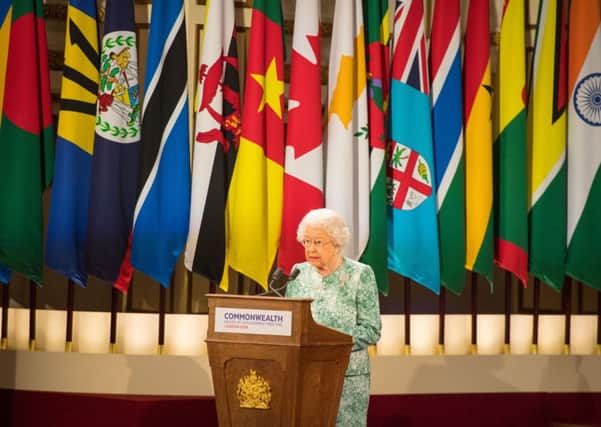David Howell: Why it is time for Britain to embrace the Commonwealth – and Asia’s growth economies


This is most visible in east and west Asia, not just because of China but because it embraces half the Commonwealth network, including India and some of the world’s most dynamic countries, such as Bangladesh, which is completely ignored by the British Press despite being one of the fastest-growing high-tech economies on earth.
Asia produces, exports, imports and consumes more than any other region on earth. It now contains several of the world’s largest economies, most of the world’s foreign exchange reserves, many of the world’s largest banks and industrial and high-technology companies, and most of the world’s biggest armies, with the obvious exception of the United States. It contains most of the world’s new giant cities, many of them with infrastructure unmatched in the West.
Advertisement
Hide AdAdvertisement
Hide AdAsia is the key to our future. Networks are the key to Asia, and the Commonwealth is by far the biggest network on the planet. A sustainable, prosperous and secure Commonwealth is utterly in our national interest, never more so than now. As chair-in-office, this year is our opportunity to contribute.
Given our departure from the European Union – if it happens – and with our alliance with the US looking increasingly wobbly, this is the clear direction in which our new role and national purpose lies.
It is not just a question of having a heads of government meeting. There is a whole list of new goals that we should be working towards to demonstrate and fulfil our commitment to proper engagement in the Commonwealth system: helping to build a new Commonwealth trade and investment agenda; exploiting the enormous digital wealth of the Commonwealth, which is linked to our common language, common law and common standards; fostering more exchange between the creative industries, vastly helped by our common language and part of the new pattern of the soft power age, which we do not fully recognise; making the 70th anniversary a major event.
As with a huge iceberg, the bulk of intra-Commonwealth activity and networking today lies beneath the radar of conventional diplomacy and its media coverage. Experts and opinion-formers, accustomed to looking only at what goes on between Governments and what is fed out at official level, completely miss the new reality: that the world is moving outside the familiar interstate system and that power and influence now flow between new international bodies, and regardless of national boundaries, on an unprecedented scale.
Advertisement
Hide AdAdvertisement
Hide AdIt is the flexibility and informality of the Commonwealth family that make it so much more resilient than the old, more hierarchical structures of the 20th century that we inherited. Remember that the Commonwealth has no treaties; it is not a treaty-based organisation and is entirely voluntary.
This makes it the ideal system for the digital age of massive grass-roots empowerment and connectivity.
I know that many Commonwealth countries may well now be quizzical about the UK’s newfound enthusiasm for working with them, given the sharp downgrading of UK Commonwealth interest from 1972 onwards.
As we return to the fold, our policies and approaches must reflect that this is not in any way a replay of old relationships.
Advertisement
Hide AdAdvertisement
Hide AdNot only has the Commonwealth of 1949 gone, the Commonwealth of the 20th century has gone and been replaced by an assembly of countries that includes some of the world’s fastest-growing economies and middle-income consumer markets. This is the network of friends and democracies with which we must now face a very uncertain future together.
We need to be clear in our minds that we are re-engaging with Commonwealth countries not in some kind of post-colonial paternal role but as a key part of the United Kingdom’s new economic and security strategy in a transformed world. I hope leaders of all parties – and of all great institutions in this country – have grasped that this is the path we now have to follow.
David Howell is a Tory peer. An Energy Secretary in Margaret Thatcher’s first government, he spoke in a Lords debate on the Commonwealth’s 70th anniversary.